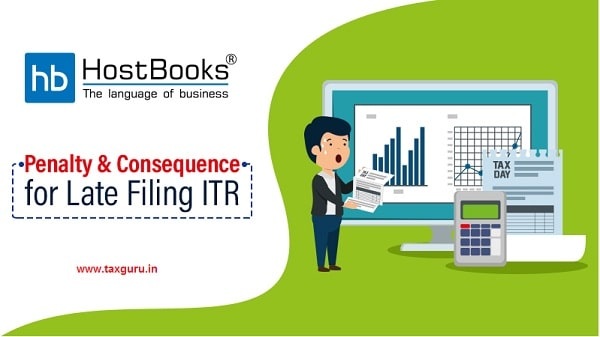The taxpayers are required to file their income tax return (ITR) before the set due date of the Assessment Year. The deadline for filing your ITR are as follows:
♠ 31st July of the Assessment Year for all taxpayers who are not liable to get their accounts audited.
♠ In case of taxpayers whose accounts are liable to be audited under any law, the due date will be 30th September of the Assessment Year.
♠ If an assessee is required to furnish a report under section 92E of the Income Tax Act pertaining to international/specified domestic transaction, the deadline will be 30th November of the Assessment Year.
Hence, the government normally gives a 4-month window for taxpayers to consolidate their income details and file their income tax returns every Assessment Year (A.Y.). If the returns are not filed by the given due date, you might face penalties or other consequences.

What are the benefits of filing income tax returns?
Filing ITR is an annual activity that is considered to be both social and moral responsibility of every citizen of the country. Apart from that, there are many other benefits which are mentioned below:
1. Loan or Card Company might seek your return– If you are planning to apply for a vehicle loan (2-wheeler or 4-wheeler), house loan, etc. then it is recommended to file your returns as the loan company may request it. Consider filing your spouse’s returns too, if you want to apply for a loan as a co-borrower. In some cases, even credit card companies seek proof of return before issuing a card.
2. Claim tax refund– If you are to receive a due refund from the Income Tax Department, you must file your ITR on time and get it as early as possible.
3. Claim adjustment against past losses– To claim an adjustment against various past losses incurred by an individual or a business, it needs to be recorded in the tax return in a financial year.
4. To avoid penalty and prosecution– Not filing your income tax return on time can lead to a penalty and other inconveniences. You can avoid this by proactively filing your ITR.
What are the consequences of late filing ITR?
Apart from a penalty, there are many other consequences that you might have to face due to the delayed filing of your income tax return. Let’s dive into some of those impacts in detail.
- Penalty for delayed filing under section 234F– In the Union Budget 2017, a new section 234F was announced by the government which is applicable for returns filed from the FY 2017-18 onwards. The maximum penalty is Rs. 10,000. The applicable penalty u/s 234F is mentioned in the table below.
| Late Filing Penalty under section 234F | ||
| E-Filing Date | Income below Rs. 5,00,000 | Income above Rs. 5,00,000 |
| Up to 31st July | Rs. 0 | Rs. 0 |
| Between 1st August to 31st December | Rs. 1,000 | Rs. 5,000 |
| Between 1st January to 31st March | Rs. 1,000 | Rs. 10,000 |
- Less time to revise your return– If you make a mistake while filing your ITR, under the changed rules, you can make the necessary changes before the end of the relevant assessment year. Earlier, taxpayers had a 2-year to revise and resubmit their inaccurate ITR.
- Incur interest on the delay of filing ITR– Under section 234A, if a taxpayer does not file income tax returns before the deadline, interest will be levied at 1% every month on the unpaid tax amount. Further, It must be noted that one cannot file ITR unless the taxes are paid.
- Delayed refunds– If you are entitled to receive refunds from the Income Tax Department, you should file ITR before the due date and receive the refund at the earliest.
Conclusion:
You can file your income tax return (ITR) on time from the government portal and stay away from tax notices and other dire consequences.





